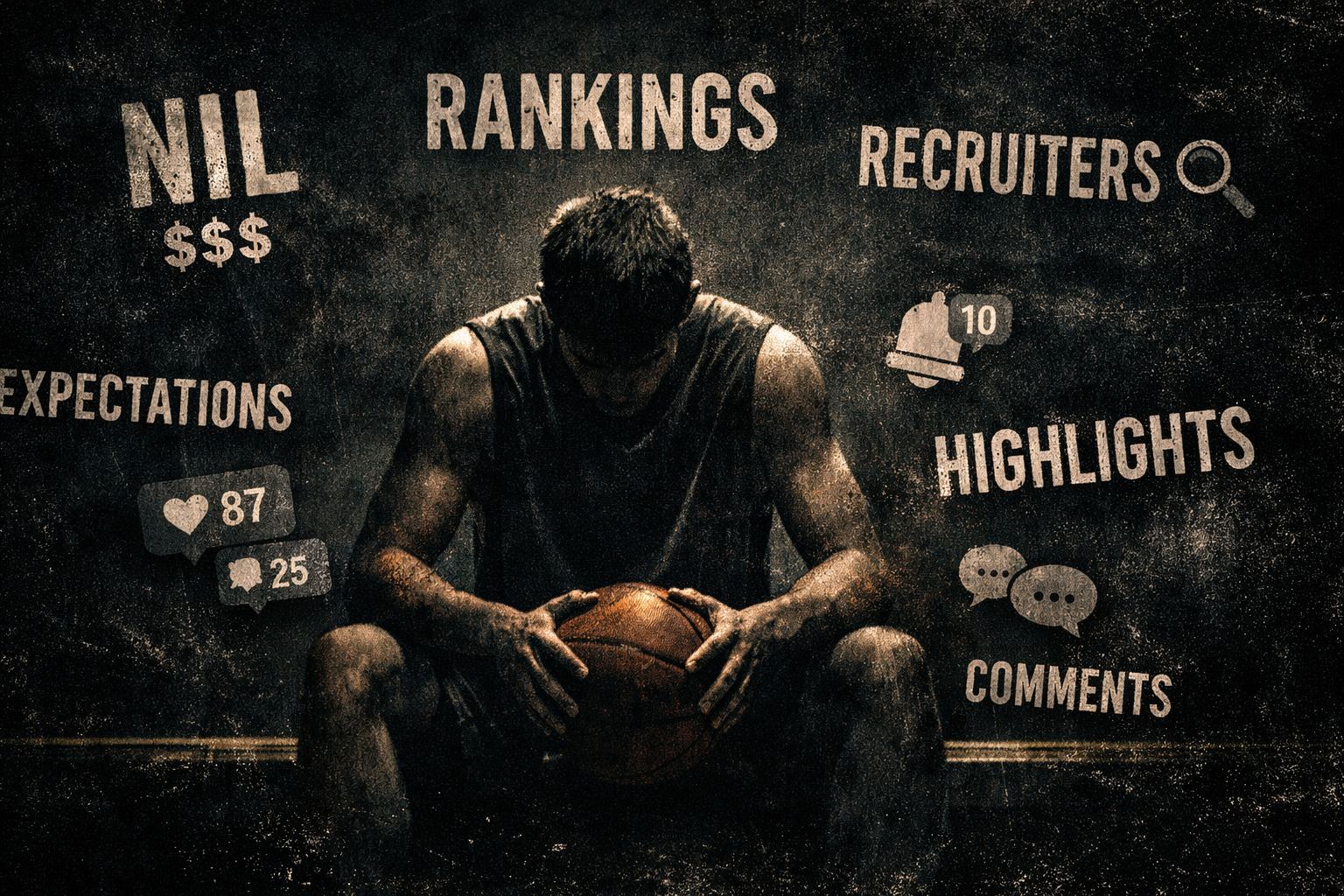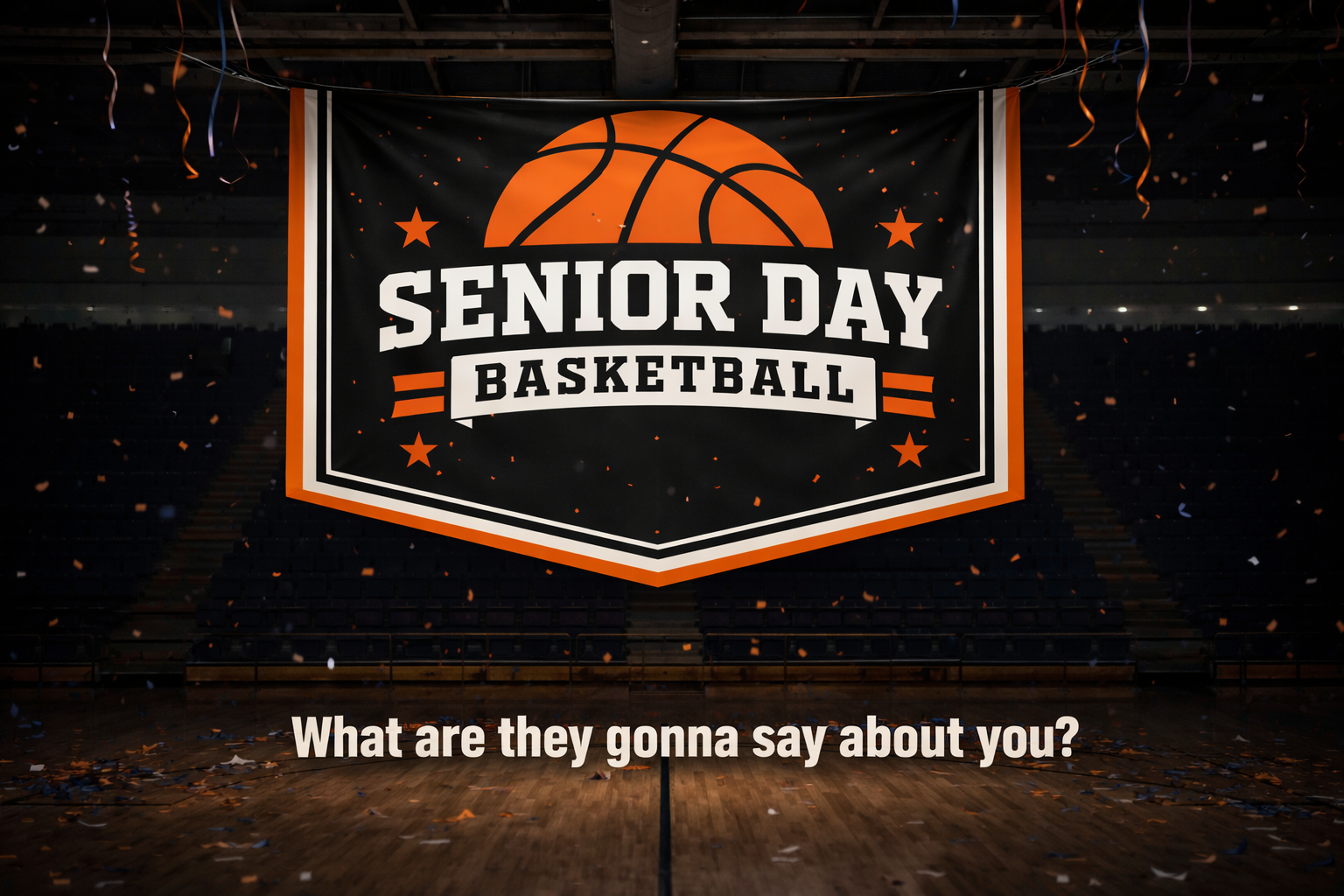Let’s be real – failing sucks. There’s no way around it. When you put your heart into the game, every missed shot feels personal. Every turnover cuts deep. Those nights when nothing seems to fall, when your handles feel off, when it seems like you’re moving in slow motion while everyone else is in fast forward – they hit different. They challenge not just your game, but your whole sense of self.
We’ve all been there. Sitting alone in the locker room after a brutal performance, replaying every mistake. Lying awake at night, wondering if you’re really cut out for this. Having those games where your confidence takes such a hit that even the simplest plays feel impossible. Basketball isn’t just a physical game – it’s emotional warfare with yourself, and some days, it feels like you’re losing that battle.
The weight of those failures can be crushing. Missing the game-winner with your teammates counting on you. Getting exposed by a better player in front of a crowd. Having a coach sub you out because you keep making mistakes. These moments don’t just challenge your game – they challenge your ego, your self-esteem, your identity as a player.
But here’s the truth that every basketball player needs to hear: these moments of doubt, these failures that keep you up at night – they’re not just normal, they’re necessary. They’re not just part of the journey; they are the journey.
Think about it. Every missed shot tells you something about your form. Every turnover reveals a weakness in your handles. Every time a defender strips the ball, you learn something about protecting your dribble. The game gives you immediate, honest feedback – if you’re willing to listen.
Elite Players Hunt Failure:
The real separation happens in how you respond to these failures. Elite players don’t just accept failure – they hunt it down. They seek out better competition, knowing that playing against superior opponents is the fastest way to expose their weaknesses. They don’t pad their stats against weaker competition; they challenge themselves against players who will make them uncomfortable, who will force them to elevate their game.
Watch any great player in an empty gym, and you’ll see them practicing the moves that failed them in their last game. They’re not running through the comfortable routines they’ve already mastered. They’re working on their weaknesses until they become strengths. Then they’re finding new weaknesses to conquer.
This obsession with improvement isn’t just about physical skills. It’s about developing a mindset that craves challenges. Every elite player has stories about times they were embarrassed on the court – crossed over, dunked on, outplayed. But they’ll tell these stories with a hint of pride, because each of those moments became fuel for their development.
The journey never really ends. Even the greatest players in the world still miss shots, still make mistakes, still find aspects of their game that need refinement. The difference is they’ve learned to embrace this process. They understand that failing isn’t the opposite of success – it’s a crucial part of it.
For the player truly dedicated to greatness, failure becomes a teacher, a guide, even a friend. It’s the most honest feedback you’ll ever get. It strips away delusion and shows you exactly where you stand and what you need to do to get better.
Every time you step on the court, you have a choice. You can play it safe and protect your ego, or you can push your limits and risk failure. The players who become elite make that choice again and again – they choose growth over comfort, challenge over safety, possibility over certainty.
So next time you miss that shot, get your pocket picked, or get blocked at the rim, remember: this isn’t the end of something. It’s the beginning. It’s not a stop sign – it’s an invitation to get better. The only real failure in basketball isn’t missing the shot – it’s being afraid to take it in the first place.
The ball bounces back to you. The gym is still empty. What happens next is up to you.




